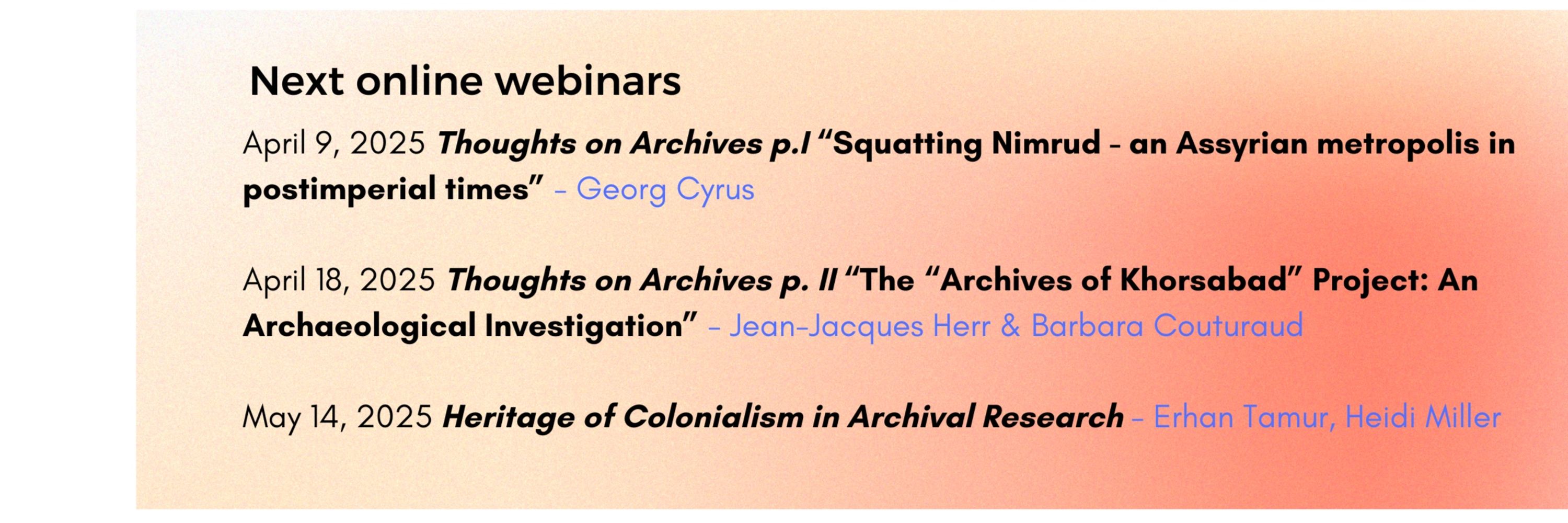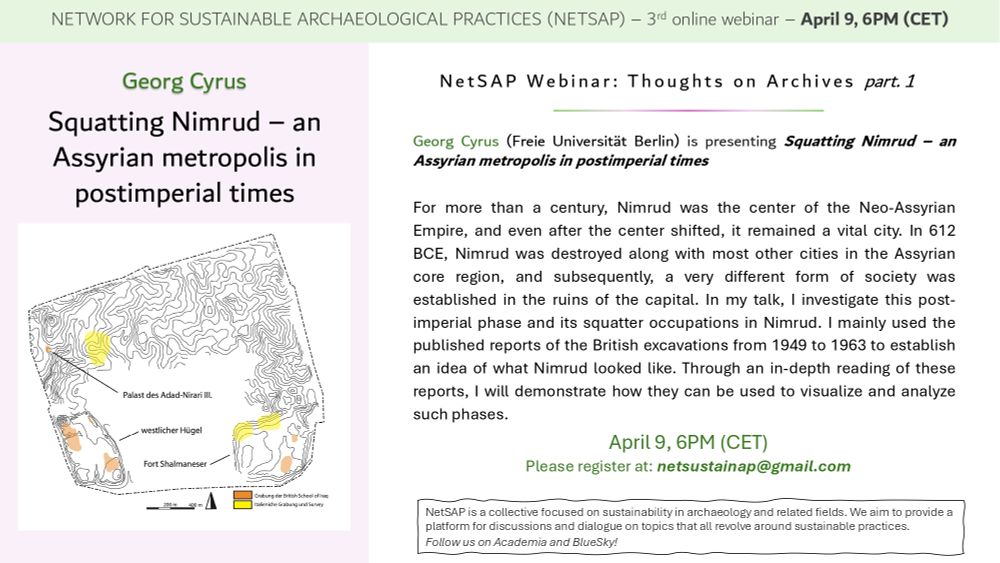Network for Sustainable Archaeological Practices
@netsap.bsky.social
150 followers
290 following
20 posts
NetSAP is a collective focused on sustainability in archaeology and related fields. We aim to provide a platform for discussions and dialogue on topics that all revolve around sustainable practices.
Posts
Media
Videos
Starter Packs
Pinned
Reposted by Network for Sustainable Archaeological Practices
Reposted by Network for Sustainable Archaeological Practices











